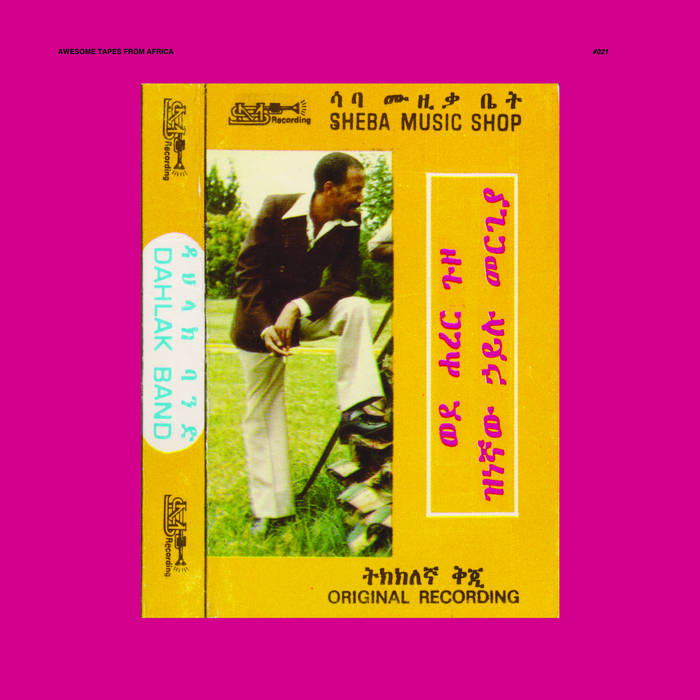Ethiopian keyboard maestro Hailu Mergia has held on tenaciously to his art and to his skills over the years since his move from Addis Ababa to Washington, D.C. in the ‘80s to escape the dictatorship of the Derg. Luckily for us, he very literally has held on to the only known cassette of Wede Harer Guzo, recorded in the ‘70s and which has since faded out of popular memory. This June, Awesome Tapes from Africa (ATFA) rereleased the forgotten Wede Harer Guzo, yet another of Mergia’s unique, original recordings. ATFA’s Brian Shimkovitz helped revive Mergia’s musical career several years ago with the reissue of a 1985 solo album, Hailu Mergia and His Classical Instrument: Shemonmuanaye, and Tche Belew, recorded with the Walias Band. Since these releases, Mergia has been touring again, taking time away from his livelihood as a taxi driver at Dulles Airport to share his innovative, shimmering sounds with the world.
A highly regarded musician in Addis during its golden years of the ‘70s, Mergia was playing with the house bands at two of the high-end, most popular hotels in town: the Hilton and the Ghion. People would stay in these hotels’ nightclubs through the entire night, until the lifting of the 6 a.m. Derg-enforced curfew, dancing to the music of Mergia and his compatriots. His band at the Hilton, the Walias, catered to an older, wealthier clientele, including foreign diplomats and tourists, providing them with instrumental music that leaned towards jazz and r&b. Over at the Ghion, the Dahlak Band performed for a younger, local crowd, filling the nightclub with soul and soulful takes on Amharic songs. Mergia joined them from time to time, and sat down with them at the Ghion in 1978 to record this record, Wede Harer Guzo. As ATFA explains, “Dahlak balanced Mergia’s traditional song selection with the modern approach of a seasoned soul band” and contributed vocal melodies to his music, which was otherwise largely instrumental.
Wede Harer Guzo is distinctly Mergia but distinct from his other releases. It’s blues through and through, while being jazz, traditional Amharic folk music and soulful funk at the same time. The record is built of some of the coolest, smoothest vibrations I’ve heard out of Ethiopia, or indeed many parts of the world. Mergia knows how to craft a band into producing a very harmonious, full-bodied sound and how to arrange Ethiopia’s many traditional songs into laid-back popular tunes. The Dahlak Band itself was clearly made of some very fine musicians, like the steady, subtle drummer driving the swinging soul feel and the eloquent, bluesy guitarist who shines on “Bati Bati.” The group lays down such solid, slow, enveloping grooves that one can’t help but move to them.
Floating above this lush landscape is Mergia and his marvelous electronic organ. He has a masterful ability to turn his synthesizer into an emotive voice, crooning the melodies that he picked up from azmaris, the traveling traditional singers who would perform in bars and clubs late at night. Mergia would learn from the azmaris at these after-hour performances which Amharic songs people were loving, and would adapt these songs into his signature sound. Some tunes, like “Almaz Eyasebkush,” are clearly influenced by American funk and soul; as is “Sintayehu,” which is a real jam with punchy funk drums and big synth chords. The album on a whole is rather lo-fi, as it was remastered solely from Mergia’s personal 40-some-year-old copy of the cassette, a sound that lends the music a feeling of times past or maybe even of a hazy Addis nightclub at 4 a.m. It’s easy to see how this music could keep people happy all the way until 6 a.m.








